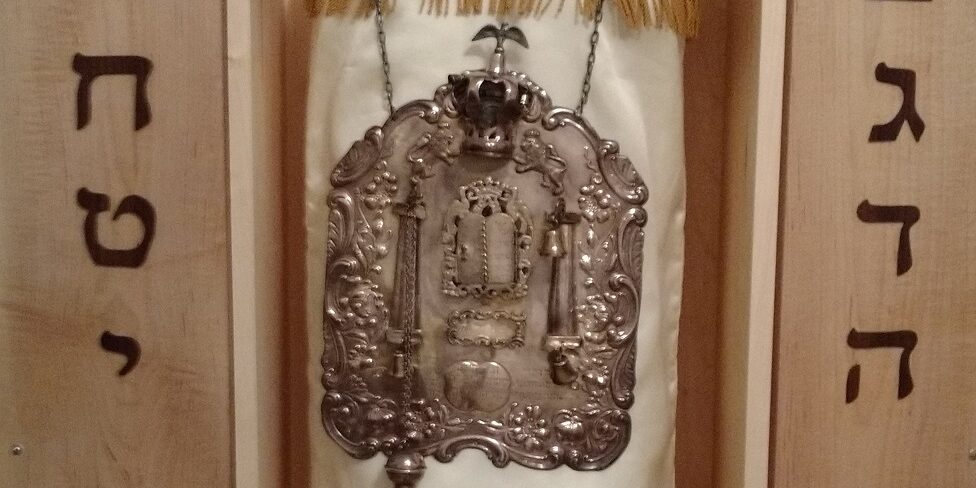Torah: Vayakhel (Exodus 35:1-38:20)Pekudei (Exodus 38:21-40:38)
Maftir and Haftarah: Shabbat HaCHodesh (Exodus 12:1-20; Ezekiel 45:16-46:18)
The Vayakhel Torah portion has the commandment to observe the Sabbath is repeated; Moses asks the Israelites to donate gifts of gold, silver, copper, precious stones, and the like, to be used for building the tabernacle; Moses appoints Bezalel and Oholiab to oversee the sanctuary construction, and they report that the people are giving more gifts than are needed. Moses tells the people to stop bringing their donations. Under the direction of Bezalel and Oholiab, skilled craftsmen work to construct the tabernacle.
Observing the sanctity of the Sabbath is stressed again in the account of the construction of the tabernacle. There are also three qualities that were bestowed by G-d on Bezalel, the chief architect of the tabernacle. Chochmah/wisdom, Binah/understanding, and Da’at/knowledge (Exodus 35:31). Chochmah denotes intuitive wisdom, binah is the practical application of chochmah; da’at is obtained through study and education.
Fundraising was developed by Moses. Go know that it was so successful. The concept of Tzedakah was a free offering from the heart of each Israelite. It was Hillel who once said: “The more charity, the more peace” (Pirkei Avot 2:7).
The Second Torah portion:
Pekudei has the description of the records kept of all work and materials used in the construction of the tabernacle, as well as the donations by the Israelites. Moses and the Israelites celebrate the completion of the tabernacle by anointing it. G-d’s Presence fills the tabernacle and leads the people throughout their journey.
The Torah portion has the concept and values of accountability of public officials with attention to the accounts of contributions and donations to the Temple clearly points to the moral responsibility of leaders. Today too many public leaders have been found to violate the trust of the public. Jewish tradition maintains that public officials must be above suspicion. Handling the people’s funds demands careful scrutiny to high ethical standards.
Another Torah portion value is Kevod Adonai: The Glory of G-d that filled the tabernacle (Exodus 40:34). At the same time, Judaism has always taught that G-d’s presence fills the entire universe and that G-d may be worshiped wherever good people dwell.
This was the finishing Torah parchot in the Book Of Shemot (Exodus),which contains 1209 verses,40 chapters and 11 Sidrot.
The maftir and Haftarah chosen this Sabbath are the concluding parts of the Shabbat services. These are read on the Shabbat Hachodesh, because this Sabbath is before the Hebrew month Nisan. It has the reading that describes the paschal sacrifice of the First Passover in Egypt, as well as the preparation of the perennial celebration of the festival.
The Haftarah, like the maftir (the last aliyah of the reading from the Torah), touches upon the Passover sacrifices in the description by Ezekiel about the restored Temple in Jerusalem. Both readings and their connections are about the Festival of Passover.
Shabbat Shalom,
Rabbi Helene Ainbinder







